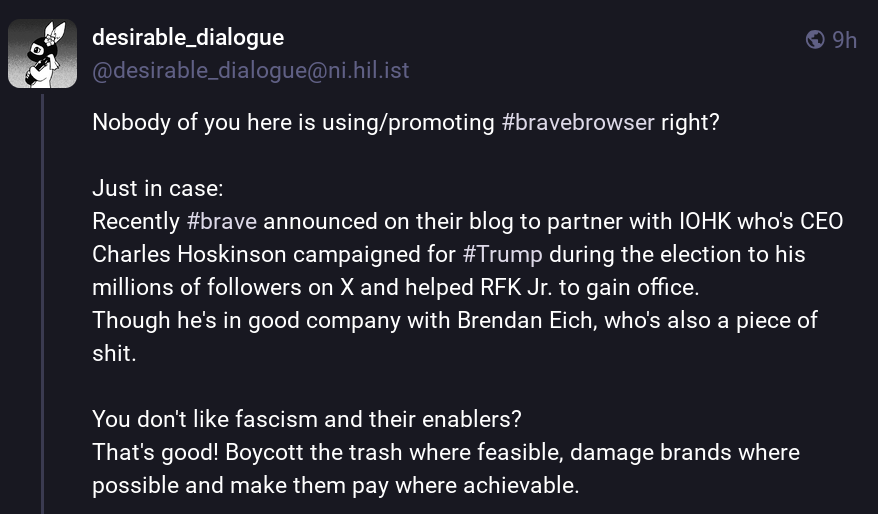

I really like logseq for my personal knowledge base, notes, and in general magaging things from to-dos, reading lists or personal projects.
The way you can structure information relationally, and espetially the “referenced from” preview that’s on each page makes it really easy to get an overwiev of something, and the query language to make your of previews (such as, list every unfinished to-do with a deadline this week) makes it a pretty powerfull tool.
Figuring out syncing, especially on mobile, took some time, since it lives in a git repo, but there are some plugins for it on PC and on mobile I just use Termux with CLI git.








I also really recommend EmuVR, it’s a frontend for Retroarch, that is the most archetypal 80s room in VR, with CRT tvs, your roms as physical disk or cartriges, and each core has it’s physical model you plug into the TV, plop yourself down in front of it, and can play. It makes the experience way, way better than playing on an LCD or a phone, and it’s my favorite VR experience I found so far.